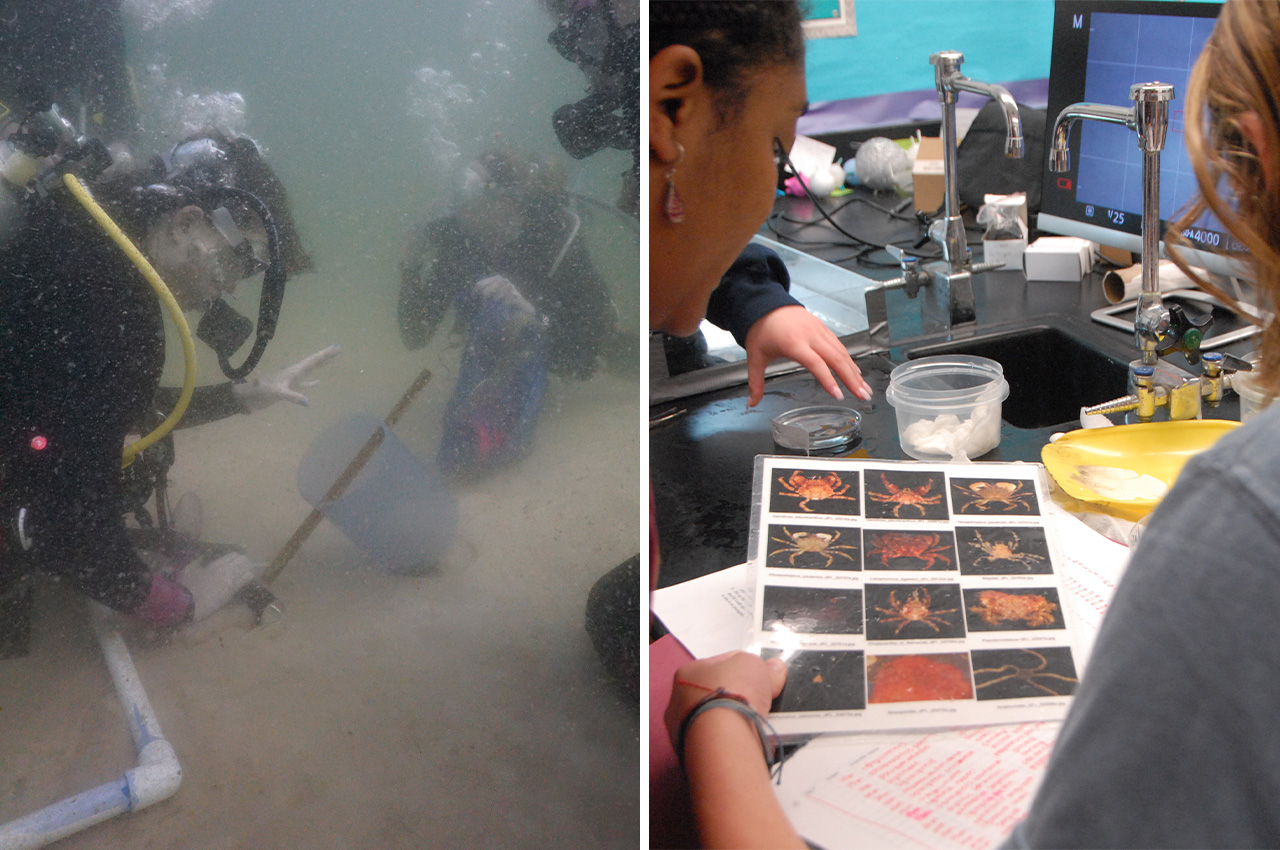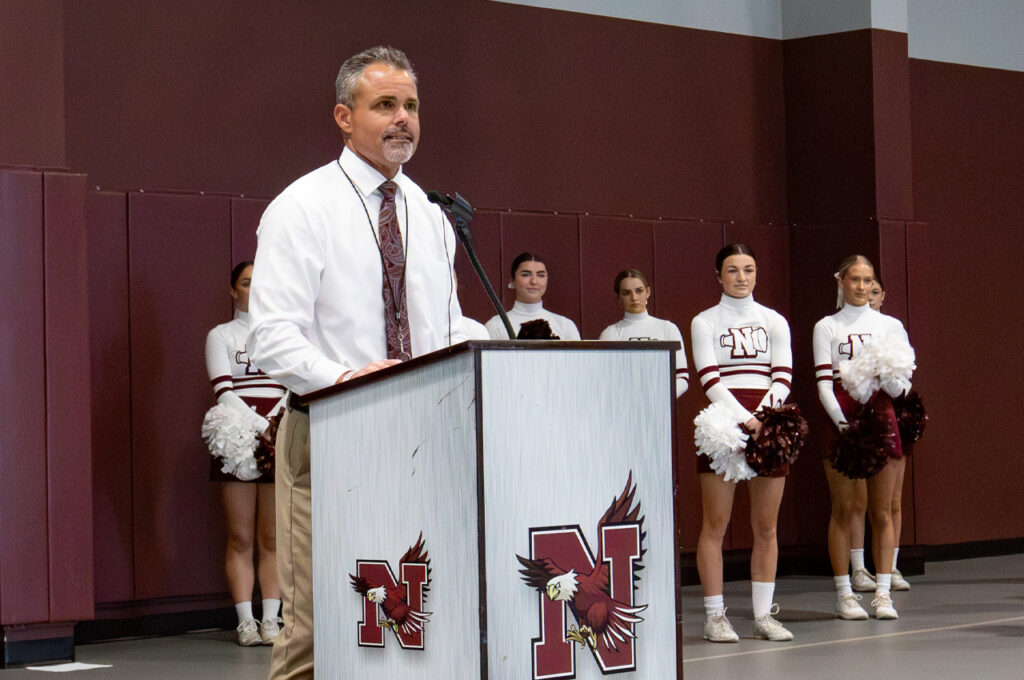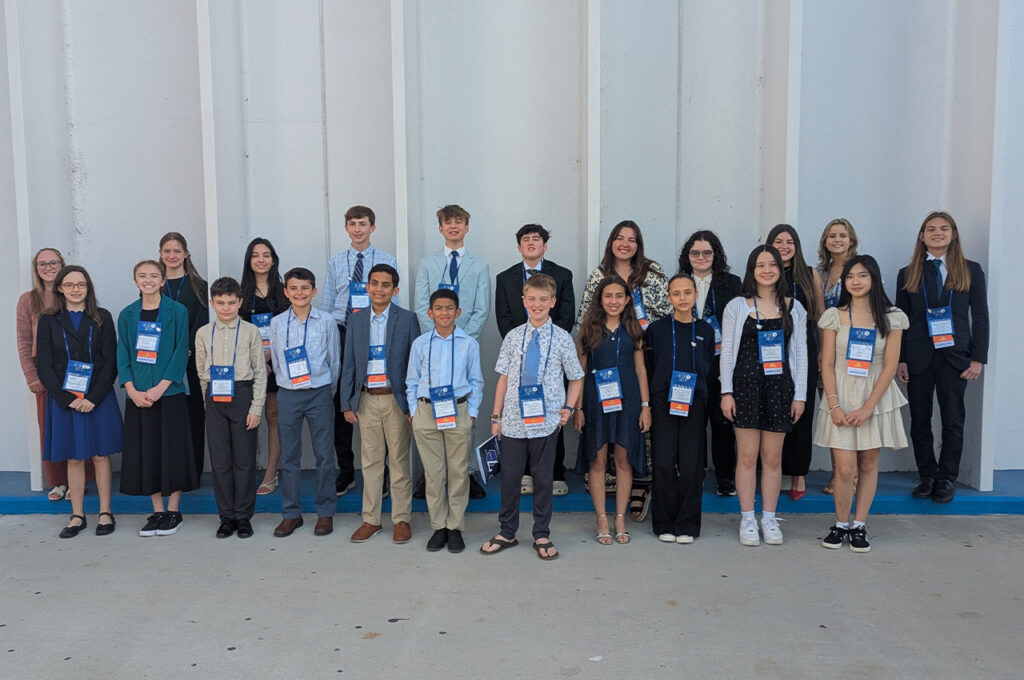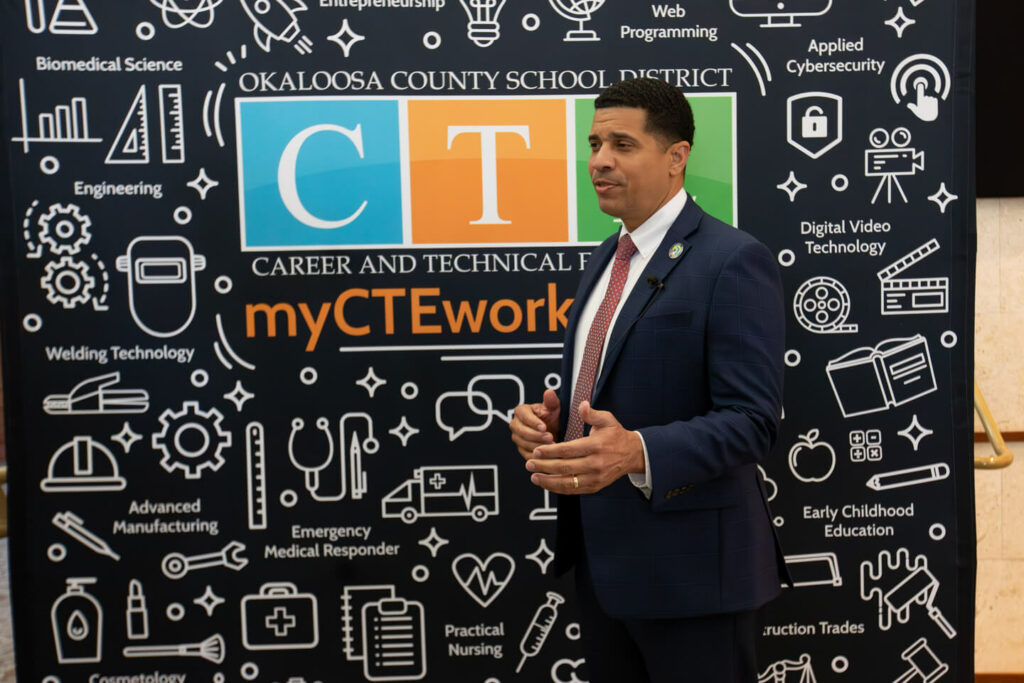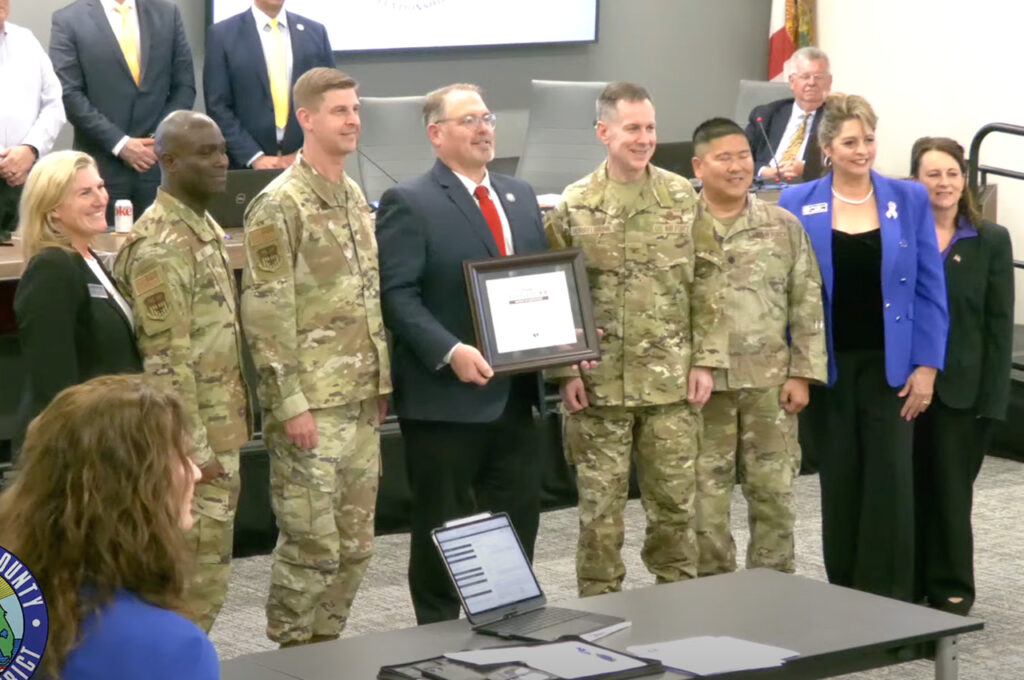In a classroom at Niceville High School, students are preparing for their next international research trip.
- But these aren’t just any students – they’re part of a unique gifted program that has garnered worldwide attention and is changing the landscape of high school science education.
Led by Richard Hernandez, a 72-year-old former Air Force captain turned educator, the program is the only high school in the world participating in the Natural Geography In-Shore Areas (NaGISA) project.
- NaGISA, which means “where the shore meets the sea” in Japanese, is a global marine biodiversity study that’s providing these students with unparalleled research opportunities.
“I see my students as a national resource,” Hernandez said with pride. “They’re as valuable as gold or uranium and they need to be cultivated as such. These are the people that are going to be running the show later on.”
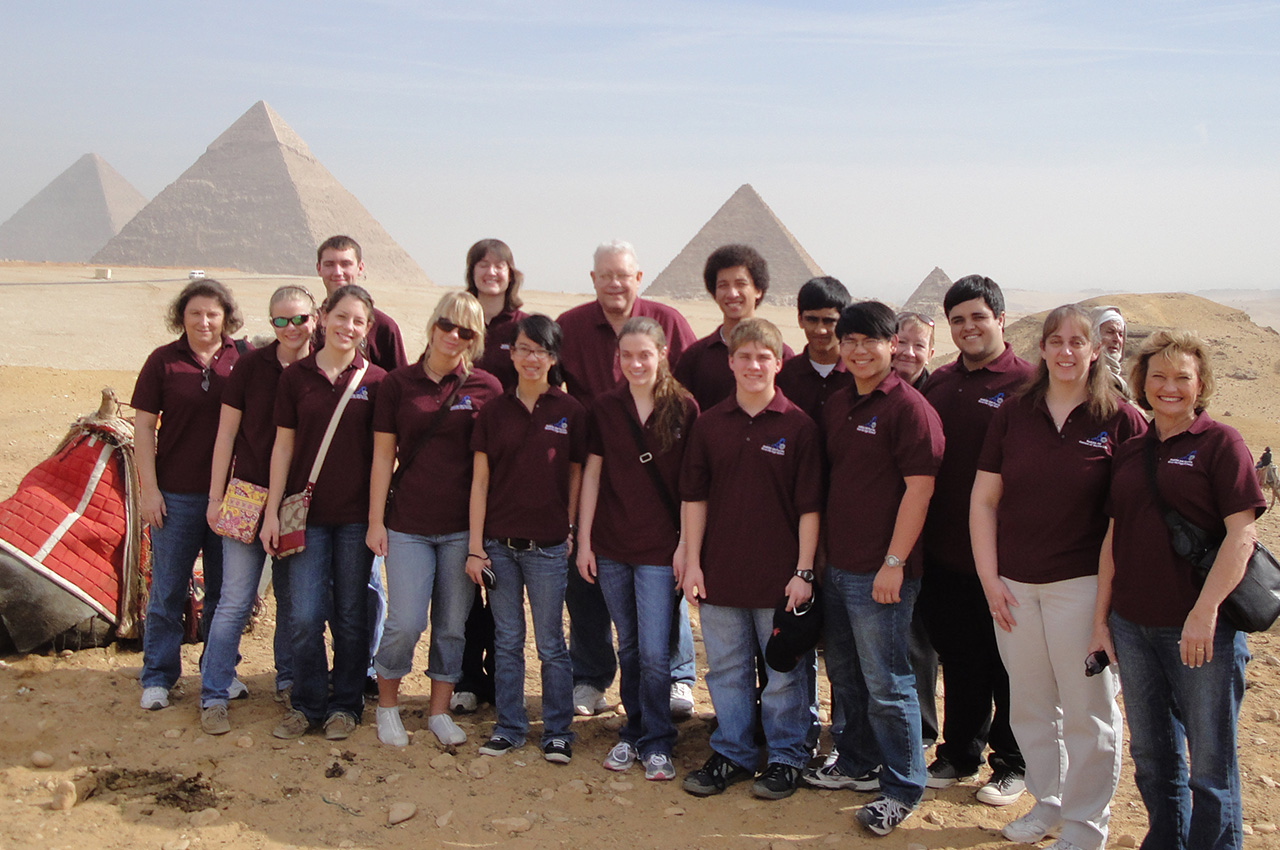
Hernandez, now in his 30th year of teaching, stumbled into the program through what he calls “dumb luck.” In 2001, he traveled to Japan on a Fulbright Memorial Fund grant. There, he met Dr. Yoshihiro Shirayama of Kobe University, who was launching the NaGISA project as part of the broader Census of Marine Life initiative.
- “He asked me if I would like to be involved with this,” Hernandez recalled. “I said, let’s see, working with Kobe University, which is essentially their MIT? Yeah, we’ll do that.”
Since then, Niceville High School has been the only high school worldwide consistently participating in NaGISA. The project involves students collecting and analyzing marine samples from various depths off the coast of Henderson Beach. They meticulously document everything from microscopic organisms to larger marine life, contributing to a global database of marine biodiversity.
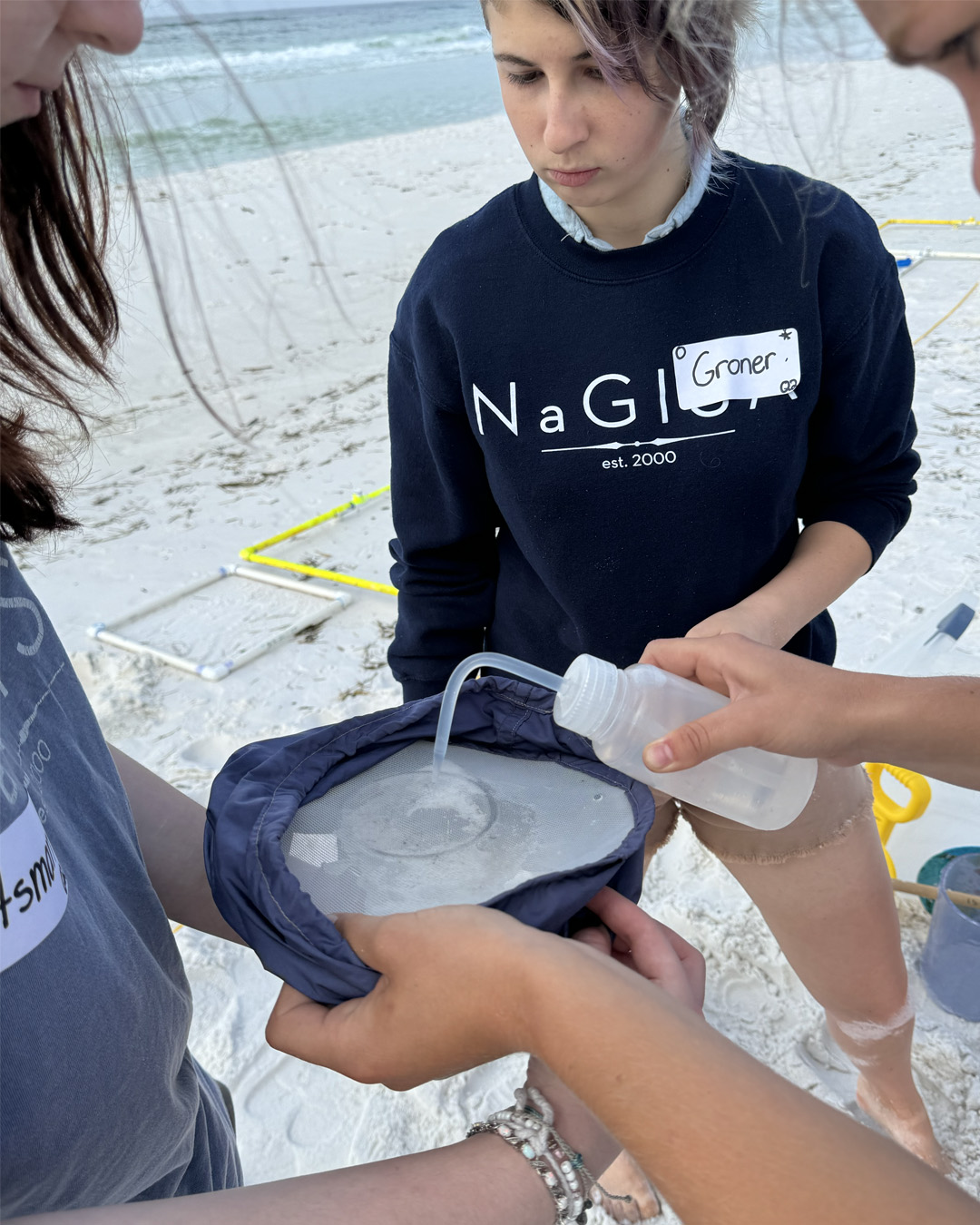
As part of NaGISA, students are involved in several other cutting-edge projects. The Autonomous Reef Monitoring Structures (ARMS) Project allows students to study larger marine organisms using artificial reefs placed offshore.
They also conduct DNA Barcoding to precisely identify collected organisms, analyze microplastics in water samples, and monitor water quality in collaboration with the Choctawhatchee Basin Alliance. The program also collaborates with Dr. Gustav Paulay from the University of Florida, who introduced the ARMS Project to Niceville High.
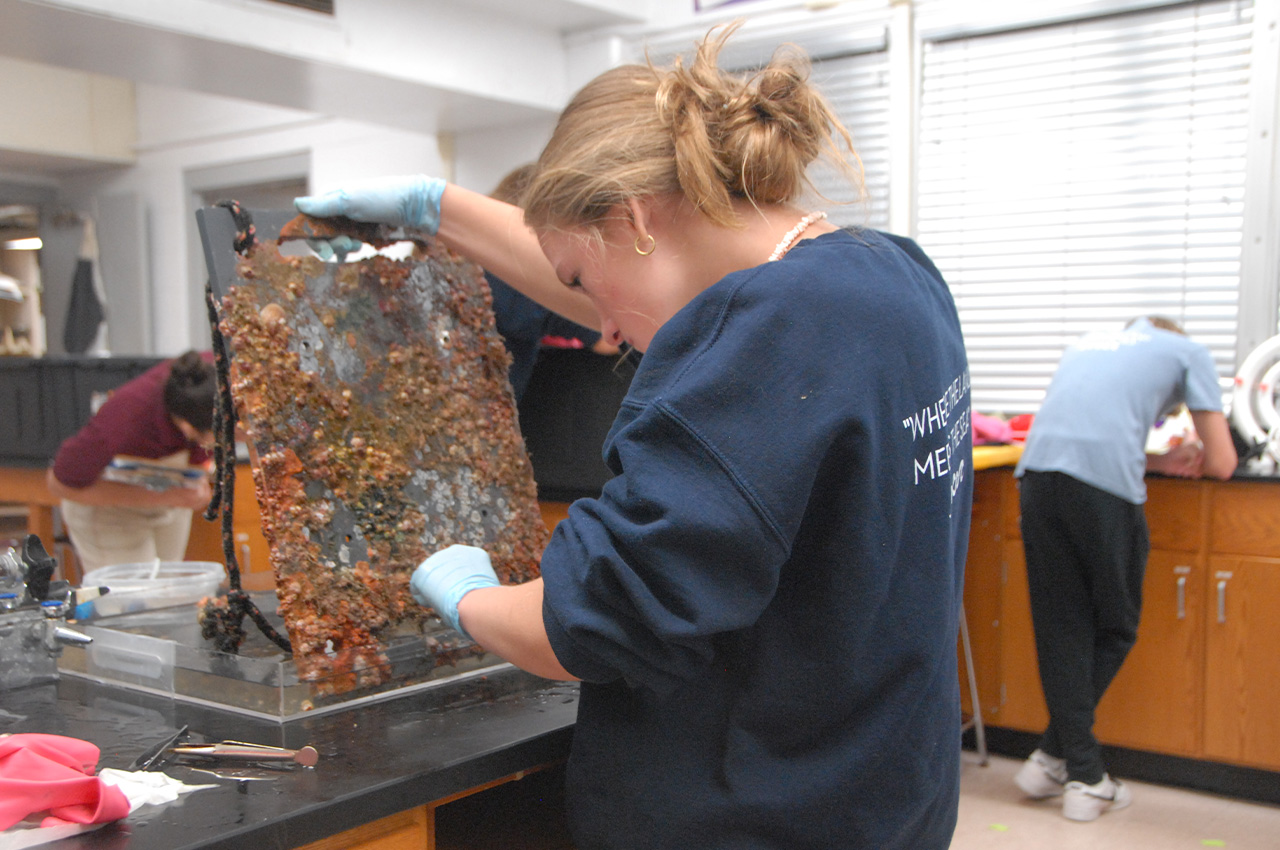
But the program’s reach extends far beyond the shores of Florida. Students have presented their findings at international conferences, standing shoulder to shoulder with Ph.D. candidates and established researchers. They’ve traveled to Tanzania, Crete, Egypt, Turkey, Costa Rica, Portugal, Spain, and England, conducting research and sharing their findings with the global scientific community.
- The program’s global recognition reached a pinnacle when Niceville High was invited to present at the Census of Marine Life final report in London at the Royal Academy. “We were the only high school that actually was invited to present at the census of Marine Life final report in London at the Royal Academy,” Hernandez noted proudly.
Principal Charlie Marello recognizes the program’s unique value. “The hands-on, real-world opportunities like with the NaGISA Project, the ecosystem study, the diving and the biodiversity projects – those things just don’t happen at most high schools,” he said. “To be able to offer that for kids who crave that creative outlet and that ability to think and problem solve on their own, that’s a big plus for us.”
The program’s impact extends far beyond marine biology. Hernandez structures the class around four pillars: presentations, problem-solving, research, and teamwork. Students tackle increasingly complex projects each year, culminating in university-level work by their junior and senior years.
- As freshmen, students start with a simple “All About Me” presentation, which Hernandez critiques rigorously. By their junior year, they’re producing 70 to 100-page papers and giving 30 to 45-minute presentations on complex engineering projects, often in front of professional engineers.
“I’ve never had a student not say ‘this was the most important class I ever took,’” Hernandez said. “In anything – high school, college – it teaches them the skills they need to be successful.”
The results speak for themselves. One student secured a full ride to MIT, while another earned a full scholarship to Stanford. The program’s reputation has even drawn students from as far as Louisiana to transfer to Niceville High.
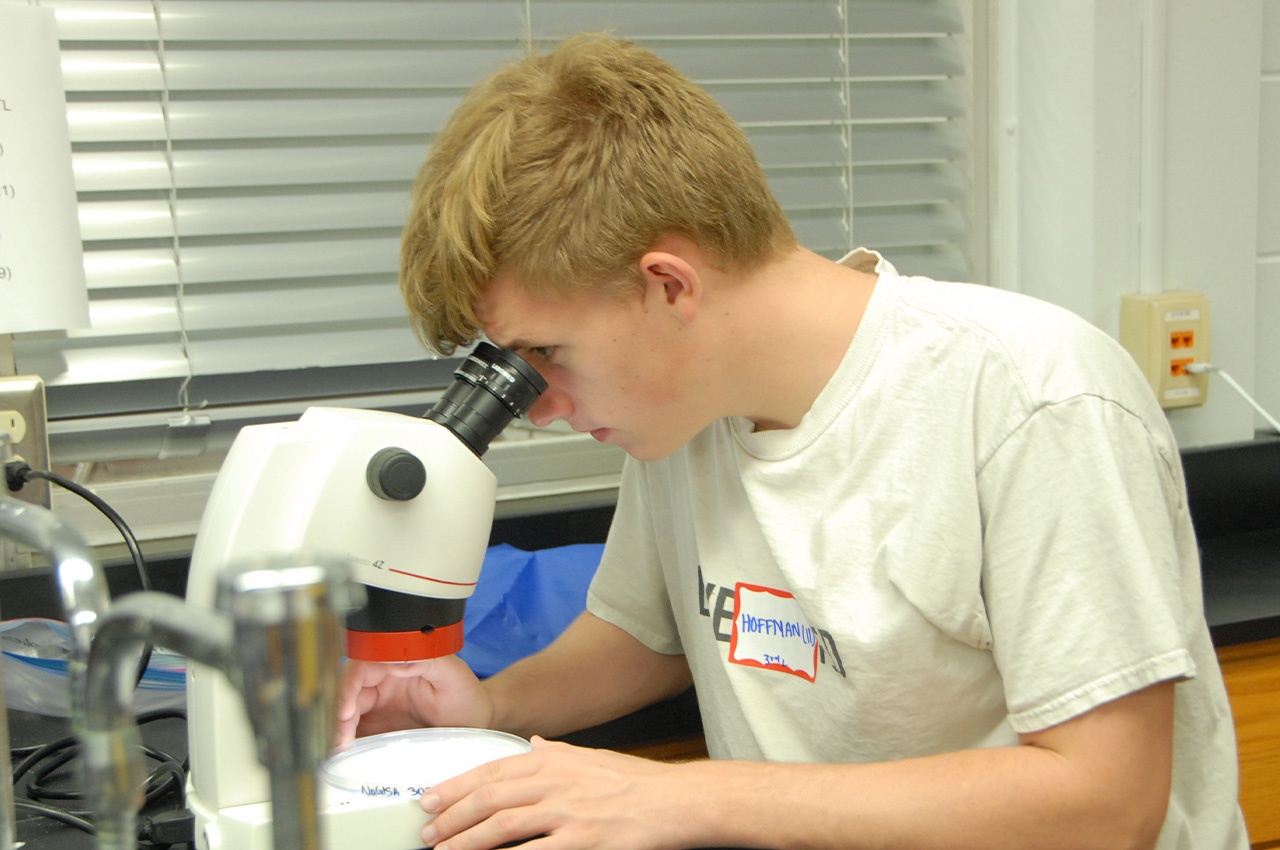
“We’re professionals,” Hernandez said, recounting feedback from the Marine Biological Association in Plymouth, England, where Niceville students have conducted research four times. “When we walk in there, again, the students do the whole thing. They do everything from the very beginning to the very end. All the analysis and all the collection. We’re just surrounding them to make sure we’re the ones signing the documentation of what they’re doing.”
The program’s success, however, comes with challenges.
- Funding for international research trips often relies on community support. Currently, Hernandez and his students are trying to raise funds for an upcoming trip to Japan for the Second World Congress of Marine Stations.
“We’re under the gun to make sure we have our best students going,” Hernandez said. “I want to make sure we have the very best team that represents the school, the county, and the state.”
The trip, scheduled for Thanksgiving week, will cost approximately $4,500 per person. Hernandez hopes to bring 8-10 students, along with four adult chaperones.
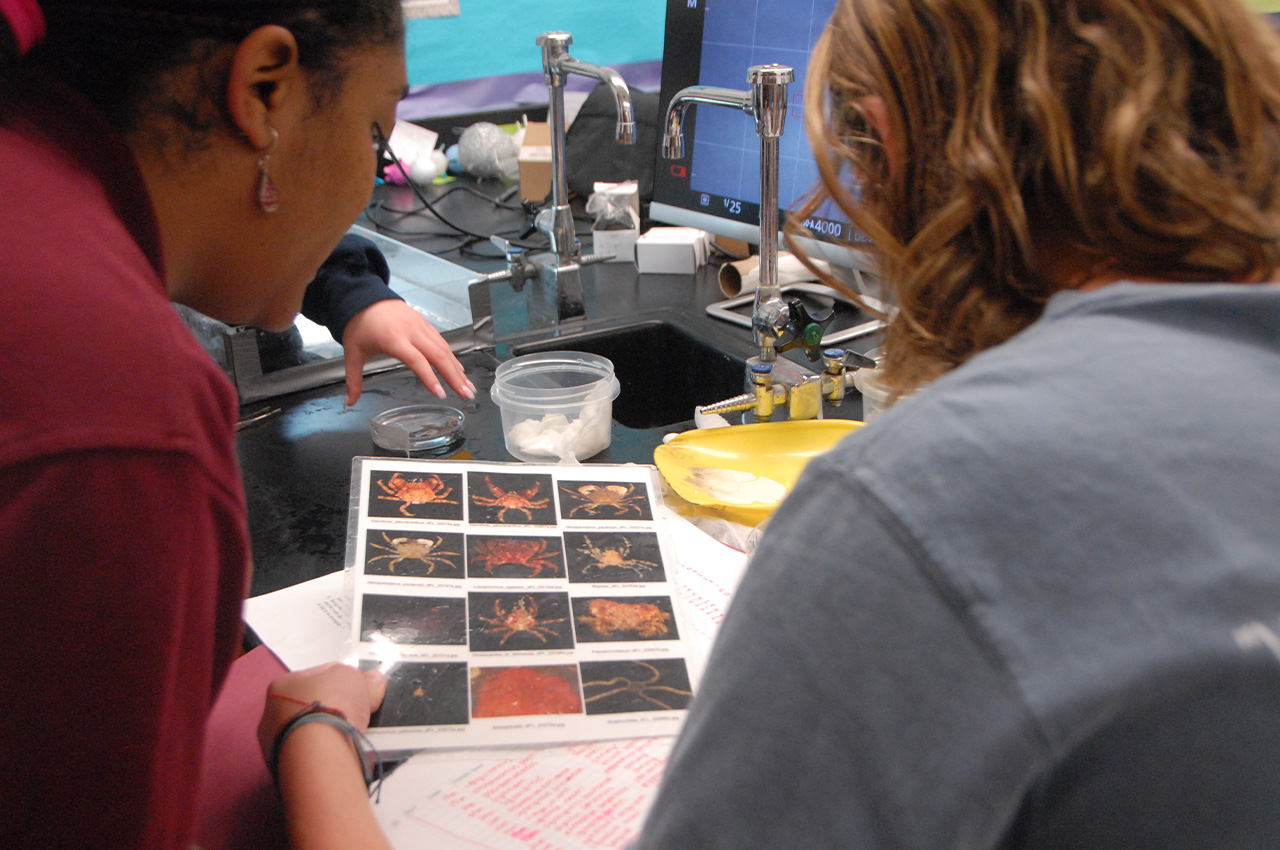
For Principal Marello, the program’s value extends beyond the classroom and into the very fabric of the school community. “We actually employ those kids for creative ideas and thoughts about ways to improve things at school,” he said. “These students are not only very intelligent, but they think outside the box. It’s not above me to float something by Mr. Hernandez and say, ‘see if any of your students have any ideas on how we can make this better.’”
The program’s impact on students is profound and long-lasting. Hernandez keeps in touch with many of his former students, who often credit the program with their success in college and beyond. The skills they develop – from scientific research methods to public speaking and teamwork – serve them well in a variety of fields.
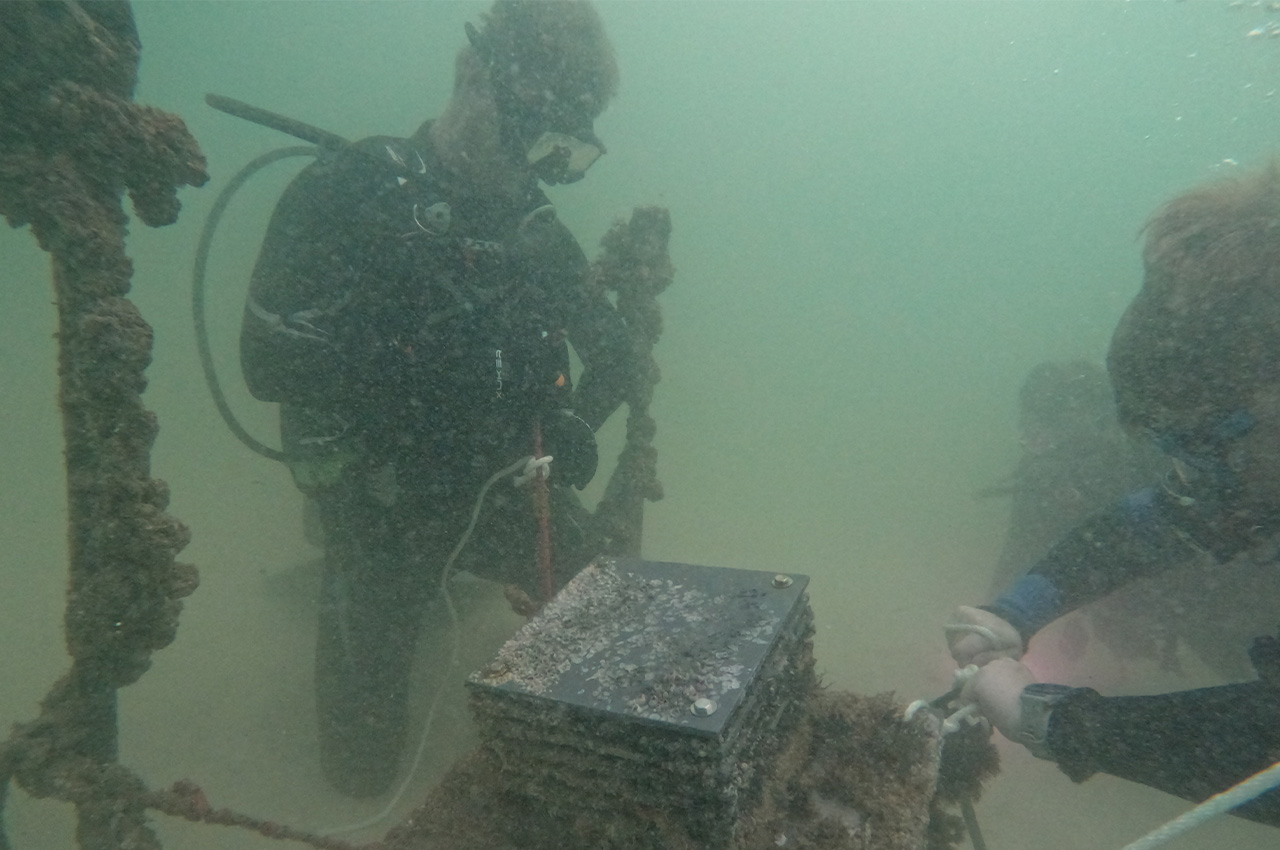
One unique aspect of the program is its emphasis on peer review. After each project, students evaluate their teammates’ performance. “If you end up being a leader and you’re a tyrant, they’re going to rip you to shreds,” Hernandez explained. “Or, if you were in the group and you did squat, they’re going to rip you to shreds. So this keeps them honest.”
- This peer review system, Hernandez believes, prepares students for the realities of the professional world. “In the real world, your peers are always watching you,” he said. “If you are someone who just continually screws up, then folks aren’t going to want to work with you anymore. And that’s going to make your career a little more challenging.”
As Hernandez approaches retirement age, his passion for education and the NaGISA project remains as strong as ever. Despite being 72 years old, he shows no signs of slowing down.
“I’m looking for a group of people that could take me out in a box,” Hernandez joked. His dedication to the program and his students is evident in every aspect of his work.
- Principal Marello appreciates Hernandez’s continued commitment. “The resources and connections he brings to get our kids involved in these global projects are invaluable,” Marello said. “He says that he will never retire and we’re certainly happy to have him stay as long as he wants here at Niceville.”
The program’s achievements are proudly displayed in showcases throughout the school, serving as inspiration for all students. “There’s a display case that shows what we do,” Hernandez explained, “and there’s another display case closer to the administration area.” These displays not only celebrate the program’s successes but also help to integrate its work into the broader school community.
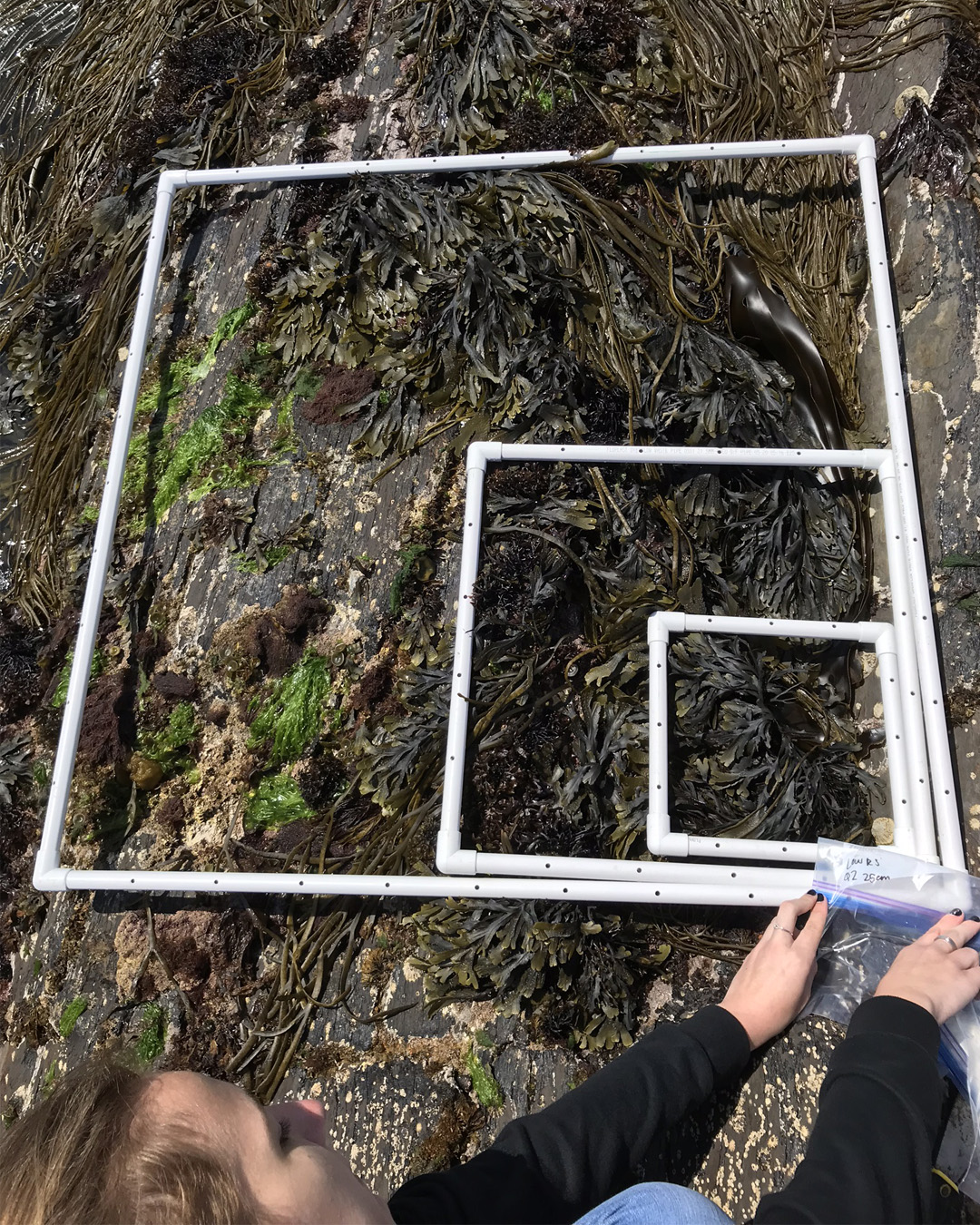
The program’s success is reflected in its high retention rate. “Kids who get involved in that program don’t want to come out of that,” Principal Marello noted. This dedication speaks volumes about the program’s impact on students’ lives and their enthusiasm for scientific research.
As the program continues to make waves globally, its impact on students remains profound. In Hernandez’s words, “If I can somehow get them into a position where they’re prepared for those roles, then I feel as though I’ve fulfilled my destiny.”
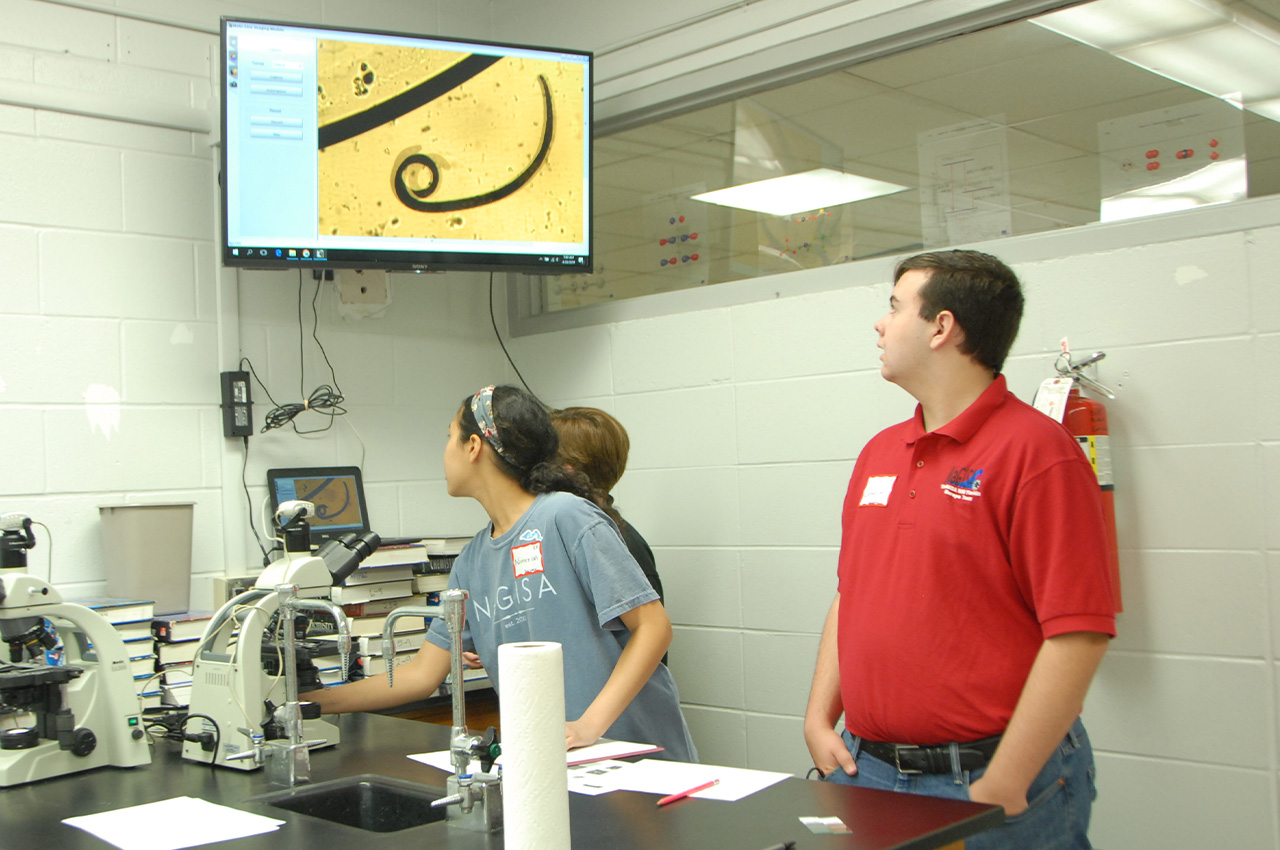
The NaGISA project at Niceville High School stands as a shining example of what’s possible when dedicated educators, motivated students, and cutting-edge scientific research come together. It’s not just a class or a program – it’s a life-changing experience that’s shaping the next generation of scientists, leaders, and global citizens.
- And it’s happening right here in Okaloosa County.
For those interested in supporting the program’s upcoming trip to Japan, contact Richard Hernandez at Niceville High School or click here to donate online.

